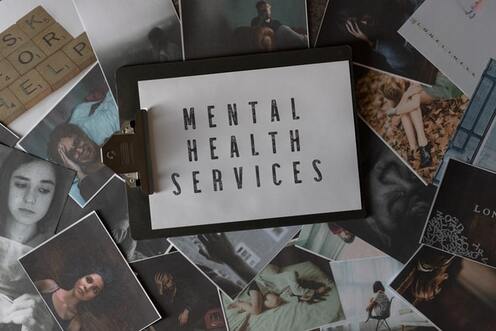|
Having to work a 9-5 job is not an easy task if you suffer from anxiety. The modern work environment is generally stressful, and many factors could cause people to become overwhelmed. From chaotic environments and strict deadlines to all social encounters (with managers, colleagues, customers, clients, etc.), many things can trigger a person with anxiety. Yes, most of the known jobs fit this description. But, don't worry - there are some exceptions. Namely, there exist some low-stress jobs for people with anxiety that you can do either in the comfort of your home or in a private office space. These jobs do not take their toll on your mental health and don't leave you drained after working hours. Thus, do not panic because there is something for you out there! And, we will help you find the perfect job for your needs. So, if you want to know what are some best low-stress jobs for people with anxiety, keep on reading. TranscriptionistHave you heard of transcriptionists? They are people who change spoken words into written ones. If you opt for this profession, you will probably work outside your home. Most transcriptionists work in different settings, such as in courtrooms, surgery rooms, etc. However, don't let that scare you - as a transcriptionist, your only job would be to write down what is happening around you. Or, you may need to write down someone's thoughts. You will never be in the center of attention and never have to deal with toxic people - that is why this is one of the best jobs for people with anxiety. However, if you feel that being in an environment where you have to work in real-time, other transcription jobs are also available. You can look for work as a transcriptionist who types out the audio from pre-recorded footage. You can also do this job remotely, so you won't have to leave your home. You will also be able to pause or rewind the recording if you missed something, which will further reduce the level of stress and pressure you are dealing with Freelance We live in the age of technology. So, why not take advantage of it? Become a freelancer, and decide how much work you will take on! Even though you will be your boss and work from the comfort of your home, you will still have no limits. Of course, you must possess good skills, some experience, and a lot of creativity and patience, but hey, that is a small price to pay for one of the best low-stress jobs for people with anxiety. There are many different types of freelance jobs you can choose from. For instance:
Housekeeping or Cleaning Many people find housekeeping or cleaning jobs to be degrading. But, there is no degrading in this honest work. You will earn your salary just like everybody else, and you will not have to worry about things that may trigger your anxiety. Most housekeepers and cleaners do jobs requiring little to no encounter with people and stressful situations. You will have no supervision, a steady routine, and peace, and you will always be able to leave work at work. Moreover, remember that some cleaning positions are better for people with anxiety than others. For example, if you don't want to have any contact with other people and don't want to be somewhere where you will have to handle other people's personal items, you should opt for cleaning offices and commercial buildings. There, you will work only night or early morning shifts when no one is around. Additionally, the act of cleaning something is said to reduce stress and positively affect depression. Artist When we think about art, we envision a free time activity, not a job that pays our bills. But why is that? Art is an essential part of the corporate world. For instance, some sort of the artists that are always needed are:
LibrarianWe simply cannot talk about the best low-stress jobs for people with anxiety and not mention librarians. Librarians work in the quiet parts of schools and libraries, of course. Their job is to give people the book they want and to provide them with some piece of information if necessary. However, even the job of a librarian has been slightly modernized. Yes, gone are the days when you will have to look for a specific book for hours. Nowadays, you just type what you need on your computer, and the program tells you exactly where the book is. So, yes, as a librarian, you will have to stay on top of technology, but you will still be working in the quiet company of books.
As you have seen, there are many great low-stress jobs for people with anxiety. We mentioned just a couple of the most anxiety-friendly ones, but trust us, there are many more out there. For instance, check out professions such as landscaping, medical coding, etc. Or focus on freelance jobs such as blogging, proofreading, data entry, programming, etc. Pollution is all around us. Rivers, soil, air... there's toxic waste everywhere. However, the most dangerous toxins often come in human forms. It can be the most charming person in your environment or someone very close to you. People you're closest to have the most power to poison you. If they have that kind of venom in their heart, you can be exposed to the most difficult toxicity of all. In those situations, it's essential to recognize the problem and follow the basic dos and don'ts of dealing with toxic people. Do: Put a finger on their effect on your emotions The most dangerous toxin that toxic people produce is the one that wraps up all the other toxins in a shiny paper of false good intention. Manipulative people often come off as the most charming and sincere human beings. Months may pass before you even begin to comprehend that something is not quite right. But, once you hear that tiny voice in your ear that starts whispering around them, it's time to take a good look at your inner being. They're saying the sweetest things, but somehow your gut turns to knot every time they open their mouth. Listen to your emotions. Emotions that you feel are effective subconscious defense mechanisms that you should never ignore. The only way you'll be able to deal with toxic people and defend yourself from malice is - to identify and acknowledge your inner defense mechanisms. Don't: Let them under your skin One of the few worst talents toxic people possess is making you doubt yourself. They master the art of destroying confidence and making people insecure. Keep in mind - no one is always right, and no one is always wrong. So, if someone makes you feel like you're a walking mistake, it's probably because they're subtly tearing your confidence and draining your energy for a long time. Once you recognize that behavior, make sure not to let that person influence your self-esteem; build a wall by using your logic. Separate what they say from what they do. That will help you put everything in perspective and put your thoughts first. Do: Make a distance Your surroundings have a significant impact on your outer and inner well-being. That's why, when you recognize the toxic person in your immediate environment, you must take proper measures to distance yourself as soon as possible. Unfortunately, one of the drastic measures that are vital sometimes is moving far away. According to experts at familyaffairmoving.com, in cases when your psychological well-being depends on the move, it's best to find a new home at a place that motivates you and helps you feel at peace. Or find the alternative However, sometimes, it's not possible to do that. In those cases, a good alternative is to:
Don't: Let them suck you in their universe Being around poisonous conduct can wear you out. This individual probably continually grumbles about other people, always has a new tale about the injustice they endure, or they try to convince you that you hurt them in some way. What is happening is that they are drawing your subconsciousness into the miserable world of dull suffering. The best thing you can do is to avoid any further interaction. Resist the temptation to join them in grumbling or defend yourself against their charges. A good old "that's tough, buddy" and walking away will do the job perfectly. It will be better for your health to read a good book or do something creative instead of wasting time listening to someone's whining. Do: Work on yourself Toxic individuals will make every effort to highlight your shortcomings and minimize your accomplishments. This is how they maintain their position of control. The best thing you can do is to work on yourself and accept every single bit of your being. Focus on self-care. If you are able to take ownership of both your strengths and shortcomings, then what other people think of you won't matter. You will know that your strengths are more than sufficient to make your deficiencies irrelevant, and no one can use them against you (no matter how hard they try). Don't: Try to fix them It's a tale as old as time that manipulative and toxic persons take their malign, broken personalities and mask them into something naive that 'just' needs help. Many women stay in abusive relationships with manipulative partners because they think they can help and fix them. However, the truth is - you can't fix anyone, especially not a toxic person. They are the only ones that can improve themselves if they choose to do so. Unfortunately, that is unlikely to happen. Remember that toxic persons love to feed off your empathy and suck the life out of people around them. Invest your time and energy in personal growth and achieving life goals. Dealing with toxic people is not easyIt's easy to give advice about dealing with toxic people from a distance. Doing it is something else. You might feel trapped and suffocated internally. You might feel like you're not strong enough to do it on your own. And that's completely alright. There's no shame in needing help. When you recognize the problem, make sure to seek it from the people you fully trust or experienced mental health professionals. Don't forget - even if everything seems dark and miserable, hope waits at the bottom of Pandora's box. There's no obstacle you can't overcome, and you'll come out as a winner from this too. Believe in yourself. I believe in you.
If concerns about climate change are keeping you up at night, you’re not alone. It’s easy to get discouraged by all the bad news about burning forests, rising sea levels, air pollution, struggling wildlife, and the general destruction of our natural environment for political and financial gain. The media constantly reminds us about all the ways in which we’re killing our beloved planet, and it’s normal to feel a sense of guilt and despair around this news. The good news is that there’s a lot you can do to relieve your climate anxiety and stand up for our planet. Every one of us has the power to heal the environment through actions big and small. Whether good or bad, the choices made by homeowners, business owners, and everyday consumers can snowball into significant environmental impacts. In this article from Real Life With Heather, we share some tips to help you cope with climate-related stress as well as a few impactful steps you can take to join the fight against climate change. Relieving Climate Anxiety Managing climate anxiety is not about minimizing your reaction to this serious global issue. Far from it! We should be worried about where the world is headed. Psycom.net explains that the first step to coping with climate anxiety is allowing yourself to feel your feelings—whether anxiety, grief, worry, or anger—without judging them or trying to push them away. Acknowledge that your emotions are valid. You’ll find that once you accept your anxiety instead of trying to fight it, the intensity of your anxiety will fade immensely. Next, recognize that it’s not your job to save the planet. You alone are not responsible for climate change. If you believe that the weight of the world is yours to bear, you will feel like a failure whenever you hear news about ecological losses. Instead, try to feel good about all the actions you’re taking to reduce your personal impact on the planet! Recognize that people and organizations all over the world are stepping up to engage in climate activism, and by getting involved, you too can make a difference. Taking action against climate change is a great way to move forward from feelings of anxiety and grief. In the next section, we’ll explore a few ways you can use your strengths, capacities, and resources to get involved! Become an Ecopreneur For some people, getting involved in the fight against climate change means starting a business that seeks to solve an existing sustainability problem. If you’re business-minded and have a passion for the environment, consider becoming an ecopreneur yourself! Ecopreneurs are business owners who prioritize the planet and people over profits. Whether it’s rescuing items from the landfill for upcycling or offering eco-friendly landscaping services to local homeowners, your sustainable business is bound to make a difference. Before launching your business, you’ll have to learn how to set up a new company. Take the time to create a business plan for your new eco-friendly company. Choose a suitable business structure. Many small businesses start out as sole proprietorships, but LLCs enjoy more perks including personal liability protection and tax benefits. Also research your target market and form strategies on how you’ll market your products or services. It’s also crucial that you set up an invoicing process that gets you paid quickly. Keep terms simple and offer customers multiple payment options. You can create eye-catching branded invoices with an online invoice generator. Choose an invoice template and then personalize it with your own logo, slogan, and design elements. Make Eco-Friendly Shopping Choices Feeling guilty about your individual impact on the planet is not the answer. Research shows that just 90 companies are responsible for nearly two-thirds of global greenhouse gas emissions! As consumers, we have a lot of power to sway the behaviors of these major corporations. Let’s hold these companies accountable! Shop from companies that are doing good for the planet, and stop purchasing products from those that are causing harm. You can find a lot of great information about corporate responsibility and sustainability online. Reduce Consumption and Waste Beyond shopping from sustainable companies, an even better way to reduce your impact is to curb your consumption altogether. Break up with packaged foods, fast fashion, and poor-quality products that are designed to deteriorate quickly. When you need to buy something, whether it’s clothing, appliances, hobby supplies, or furniture, look for second-hand options before buying new. When you head to the grocery store, stick to the produce aisles and pick up whole foods that don’t require processing and packaging. Be mindful of your shopping habits and aim to reduce, reuse, and recycle—in that order! Food waste is a significant problem contributing to climate change. According to Innovate Eco, food waste that ends up in the landfill produces methane and carbon dioxide due to the lack of oxygen during decomposition. Not only that, but wasted food means wasting the vast resources that went into producing, transporting, and storing the food. Try to waste less—and compost your scraps! Support Biodiversity In Your Backyard If you have a backyard, there’s a lot you can do to support the local biodiversity of plants and animals in your area. Backyard habitats are home to many native species. Unfortunately, many properties feature large expanses of pesticide-ridden lawn that provide few benefits to the plants and animals that support our delicate ecosystem. Consider doing some eco-friendly landscaping in your backyard to provide a home for bees, birds, insects, and other beneficial fauna.
As the world’s environmental issues continue to worsen, increasing levels of climate anxiety are sure to follow. Unfortunately, worrying about the state of the environment is the reality of being human at the time in history. Use your feelings as fuel! Take action against climate change however you can. When we all act together, we can make a difference! We are all familiar with the fact that working long hours leads to burnout, stress, anxiety, and even severe health diseases such as heart attacks. But, despite all of that, we continue to push ourselves to work even harder and longer. An average person works 45 hours a week. And, some people work even 50 or more hours a week. If that weren't enough, they all fail to leave work at work and bring it home instead. They spend 'after hours' answering emails, returning phone calls, making presentations, etc. Most people believe that working more will contribute to higher productivity (which will, in return, contribute to more accomplishments). However, overworking can only make you less productive! When you burn out your mind and body, they stop functioning properly. Thus, it is necessary to leave work at work and use your free time to relax and recharge. We know how difficult that may be for some of you, but you must try! So, here are our seven ways to leave work at work. 1. Plan the End of Your Work DayThis sounds relatively straightforward, but many people fail to do so. Namely, when we arrive at work, we tend to go with the flow, finish tasks, procrastinate if there is time, or even complete some daily habits that drain our energy instead of helping us. But then, at the end of the work day, we realize we haven't done any prioritizing. So, we are forced to stay longer or bring our work home. This is all because we didn't plan the end of our workday! To prevent this from happening, in other words, to leave work at work, plan when you want to leave. Then, prioritize everything that you must do until that time. Don't waste your time on anything irrelevant. Plan your day and stick to that plan. 2. Notify Everybody That You Have to Leave at a Certain Time If you constantly volunteer to work overtime, your colleagues and managers will get used to that. They expect you to finish everybody's work, fix all the problems, and simply handle everything they don't want to do. But, no matter how much you like working and being in charge of everything, doing all this work overtime will, sooner or later, drive you crazy. It will stress you out. Then, you will either get into a fight with somebody or with yourself. Neither of these 'stress managements' is good. You need to find healthy ways to deal with it and reduce overall stress. For instance, you can tell everybody that you won't be able to stay after working hours. Or, you can ask them to call you only during working hours. Do this once, then twice, every day of the week, and everybody around you will stop giving you last-minute tasks or expect your help after 5 PM. 3. Give Yourself Time to Leave Even if you decide to leave work at work, it will be hard at first. Right before you decide to leave, you will be distracted by emails, phone calls, questions from your colleagues, messy files, etc. You mustn't allow these things to prolong your working hours. So, every day, schedule some time to handle everything stopping you from going home. That can be just 20 minutes or half an hour before your departure. Treat those minutes like you would treat an important meeting. Focus on the tasks that must be done and don't allow anything or anybody to interfere. 4. Prioritize To get your paycheck and not worry about money, you need to do your work. And just as previously mentioned, you probably fill your days with random tasks that are not necessarily part of your work, and because of that, you don't finish everything on time. So, you are forced to stay late and do the work that you are paid for. You have to learn how to prioritize! Train yourself (that is, train your mind) to focus on the most important things as soon as you arrive in the office. Finish all the important things ahead of time, and then, if you have some time left, do the less important ones. Or, leave the less important ones for tomorrow. 5. Schedule Time for Hobbies after Work Maybe you work overtime because you get bored at home. But, who says that you have to go home after work. There are many other places you can go to and have fun. For instance, you can do your favorite hobby after work (go to a pottery class, language class, etc.) or do some physical activity (yoga, pilates, boxing, etc.). Or, go home to focus on cooking your favorite meals and maybe even share your recipes online. Find something that makes you relaxed and happy. Once you do, schedule time for it right after your work. This will undoubtedly motivate you to not overwork and spend your free time doing something you love. 6. Pick up the Phone We love our emails. They are an excellent means of communication. But, sometimes, waiting for a replay can take ages. That drains one's energy and time! So, instead of waiting for an answer to the important email, just pick up the phone. Calling your client, customer, manager, etc., over the phone will save you a lot of time you would otherwise spend typing, responding, checking, sorting, and who knows what else. Don't allow your cluttered and disorganized inbox to drain your energy and stop you from leaving work at work. To leave work at work, you need to change your strategy. But, of course, check with your manager first! You don't want to infringe on the company's policy. 7. Take Advantage of Technology Phones can save you a lot of time, just like mentioned above. But so can the rest of technology! Technology is there to make our lives (and our work) easier! So, use it to your advantage. Find tools and apps that can help you do your job faster. Get a better phone, laptop, or even a better tablet if necessary. You would be surprised at how much time and energy you can save by using the right technology.
However, don't let that same technology overpower you. When you have so many things in front of you – things that are blinking, clicking, ringing, etc., it is easy to get distracted. So, once again, use technology to your favor and turn it off when you need to stay focused. You can use an app for that too. For instance, an app called Freedom can, upon your command, turn off your Wi-Fi and disconnect you from everything in just one click. As you have seen, there are many ways you can leave work at work. We mentioned just a few of them, but you already know there are many more ways. You just have to research on your own, try a couple of your ways, and find what works best for you. In a world run by corporations - money is the ultimate goal. The thin piece of paper is no longer a tool to make your life more comfortable—life has become a tool to make money. So, it’s not a surprise that having and gaining money gives you a headache. What if you can’t provide a good home for your family? Will you be able to find the right place to live and work within your budget? However, being tense about your savings won’t help you achieve your goals. So, we provided you with 6 secure steps to help you stop worrying about money. 1. Reset your mindsetBegin by expressing some empathy for your own situation. Don’t be too hard on yourself. Take a deep breath instead of obsessing about what went wrong. Get yourself in the correct mindset and convince yourself that you can solve this problem. You’ll be able to make better judgments if you stop criticizing your every move. Unless you can get yourself in the appropriate frame of mind, you will never be able to solve anything. As a result, before tackling your financial problems, you should practice self-compassion and being happy even if you’re not content with your finances at the moment. Seek helpThere’s no shame in being overwhelmed by everyday worries—money included. Sometimes, it’s best to take a deep breath and admit that you are in too deep and you need help. That’s a huge step! It’s not a bad idea to seek assistance from a professional. They will offer the best advice for improving your mental health, and good mental health is a base for every improvement. 2. Get factualDo you know that saying, “Yesterday is history, tomorrow is a mystery, but today is a present, a gift we should cherish?” You probably overstress about the “what ifs” and “would-be-nices.” Stop doing that. Evaluate your present situation realistically and appreciate all that you have at this moment, no matter how small you think that is. Put all the things on paper and get ready to make a plan. 3. Make a strategy to stop worrying about moneyA good strategy is half of the success. Having a strategy in place can allow you to better manage your finances. Begin by being open and honest with yourself about your current debt situation. Every good strategist knows that starting small and making a slow build-up is the wise thing to do. So, regardless of the interest rate, make a list of all your obligations in ascending order of size. Pay off the lowest debt first and then work your way up, paying the next smallest obligation first and so on. Once a debt is paid in full, the freed-up money rises exponentially and is hurled at the next one. 4. Use the gift of technologyThe good news is that technology works in your favor. Digital budgeting tools and applications may make money management simpler and provide strategies that are proven to work. You may tap into them by following these tips:
5. Respect your limitsEven with the technology working in your favor and doing all the calculations for you, it’s quite easy to get carried away. You know that you should be saving, but that low-cost flight to Bali sure seems tempting, right? However, it’s crucial not to give in to these thoughts. Even making a small stretch to your budget can psychologically induce the downfall of your whole saving plan. So, this is the part where you need to be a little strict and respect the boundaries you set. This is especially important if you’re planning on a major and expensive change in life, like relocation or buying a new home. Professional movers often say that it’s crucial to stay within your limits when making a relocation budget in order to make your move as painless as possible. 6. Secure your retirementIf you worry about your future, you probably worry about your retirement too. So, It’s important to start saving early and automate your savings approach as much as possible. Your long-term financial picture will improve just by having a solid retirement plan. You can take advantage of 401(k) if provided by your employer, or you can start an Individual Retirement Account (IRA). You can open a myRA account even if you’re dealing with a financial setback after the pandemic and have just a few dollars to spare. Little by little, it will add up by the time the retirement comes. ConclusionStressing about money is stressing about existence. That is the world that we live in at the moment, so it’s perfectly normal. However, giving in to the pressures of capitalist society will not help you as an individual in any way. So, be sure to follow these six steps we provided you with, stop worrying about money, and step into the journey of mental health, pure happiness, and joy of living. Remember - money doesn’t create your happiness. You do.
Meta description: Are you constantly on the edge of your seat thinking about your finances? It’s time to follow these steps and stop worrying about money! Many seniors have opened their hearts to enjoying another chance at love in their golden years. For some, they've found their second soulmate, while others are enjoying love for the first time. One thing's for certain: It's never too late to fall in love and tie the knot. Although used to a life of independence, seniors can find creative ways to navigate marriage and merge lives. The key is deciding how much to merge while building a life together. Ways to Merge in Married LifeThere are many ways to combine your previously well-established lifestyles while still maintaining your independence. Buy a HomeAs a married couple, you may wish to gain an asset together by investing in property. If you already have your own home, consider renting it out. Rental income could cover the costs of your new home and give you an added sense of security. Seniors should also consider their estate plan, inheritance rights, and other legal issues before purchasing. Owning multiple properties does mean you can — as a couple — decide which house you'd like to make your home. Start a Business TogetherWhen you enter the second phase of your business life, you're armed with wisdom, experience, and clarity. Whether you need to generate income or not, starting a small business together is a fantastic way to keep busy and deepen the connection with your loved one. Business ideas can include anything from a tax consultation or dog walking business to concierge and gift-wrapping services. Accounting software is an essential tool for managing your finances. Choose accounting software that automates your invoicing and tracks your expenses so you can save time and effort that would otherwise be spent on manual record-keeping. In addition, accounting software can help you to stay organized and keep track of your income and expenses. This can be particularly helpful during tax season, when you need to provide accurate information to the IRS. Find a Shared PassionYou may have heard the old adage, "Couples who play together stay together." You have a lifetime of hobbies and well-established interests. Find something new that you're both interested in doing — it'll inject a sense of fun into your marriage. Whether it's joining a hiking club, book club, or cooking club, there's no shortage of options available. Finding a fun common ground is key to the longevity of a marriage. Combine FinancesThe older you get, the more complex your financial history may become. When entering your marriage, be transparent about your debt, assets, and financial situation. If you support family members, let your partner know. You may want to merge household and travel accounts but keep your own separate savings accounts. Alternatively, some senior couples merge all accounts and debt, which is another option. It's important to keep the lines of communication open and discuss how you'll manage your daily money. Making a Life TogetherCreating a new life of coupledom can take some adjusting, but sharing the load is worth the effort. It's quite possible to maintain independence while simultaneously sharing everything.
Working remotely offers many benefits, giving you flexibility in terms of when and where you work. If you've lost your remote job recently, you might be worried that you'll never enjoy this kind of freedom again. Don't despair. There are many remote jobs available out there. This resource guide provides the tips and tools you need to find your next role. Update Your Professional Profile Prepare your profile to increase the odds of a positive job search.
Know Where to Look for Work Here are some resources to help you find your next remote job.
Consider Starting Your Own Company If you don't find a remote job you love, follow these steps to start your own company.
Invest in the Tools You Need to Succeed Once you land your new gig, set yourself up for success with the right technology.
In life, people can usually be classified into two categories. On the one hand, you have the very determined ones who have clear goals in their mind. On the other hand, some are less certain about what they want. But just because you fall into the second category, it doesn’t mean you can’t change that. Setting goals in life can help you achieve happiness and fulfillment. So, you’ve got nothing to lose. Just try it. Here are our six tips for setting goals when you don’t know what you want. No. 1 Identify Your Focus Areas for Setting GoalsYou might not know what you want exactly, but you can start with the general things. To do this, you should identify the areas you want to focus on. Here’s a list of the most common aspects of life that people wish to develop:
No. 2 Use the SMART Method for Setting GoalsThis is an excellent tip for setting goals when you don’t know what you want. The first mention of the SMART goals dates back to 1981, and it has been used ever since. While it can mean different things to different people, the main idea is that goals should be:
No. 3 Set a Timeframe for Your GoalsSet a timeframe once you’ve identified your focus areas and what you wish to achieve. Most things in life can’t be achieved overnight. Therefore, you have to learn to be patient and not give up. But setting a timeframe can motivate you. Now, depending on what you want, there are three types of timeframes for your goals:
No. 4 Write It All DownIt’s one thing to think about what you want to achieve and another to put it on paper. Once you write down your goals, you’ll have a clear picture of what you want and the available timeframe. You can make a goal board in your home or place post-it notes around the house. The idea is to see them every day and remind yourself where you’re headed. This can be highly motivating. No. 5 Make an Action PlanIt's not enough to identify what you want. Setting goals should also involve making a plan on how to achieve them. You can't expect things to happen without lifting a finger. For example, if your focus area is your career, you should make a plan on how to get your dream job. Find ways to constantly develop your skills, such as training courses or various projects. However, if you're not content with your current career path, you can always venture out. You won't be the first or the last person to decide that moving cross country for a career is a good idea. If you can find opportunities elsewhere, it's completely understandable that you will want to try them out. Don't get discouraged if you find your dream job on the other side of the country. You just need a well-defined action plan. No. 6 Don’t Be Too Hard on YourselfOnce you've made a plan, you should stick to it. Of course, this is easier said than done. Nobody is perfect, and you will make mistakes along the way. But it would help if you weren't too hard on yourself. Plus, sometimes, things happen that are beyond your control. So, don't give up if you don't manage to meet a goal in the timeframe you've set. Yes, it isn't enjoyable, but it's not the end of the world. Just give it another try. Final ThoughtsSometimes it's hard to identify what you want in life. And even when you do, it might not be easy to obtain it. However, setting goals can motivate you, which will help you achieve what you desire. So, use these tips for setting goals when you don't know what you want. They will help you narrow down what's important for you and how you can attain it.
If you are looking for a career that can truly impact people’s lives, becoming an independent insurance agent may be for you. But, there are a few steps you should take before launching a new endeavor, whether you plan to own and operate your own agency or want to work for one of the big guys. Real Life With Heather explains a few things you should keep in the back of your mind as you make your decision. Invest in a quality resume If you’ve never worked in insurance before, it makes sense to try your hand as a commissioned agent before starting your own business. Even if you don’t have experience in the industry, your resume can help you land a job. Crafting a quality resume is especially important if you are starting your career, such as if you’ve just graduated from college. Give yourself a head start by using a free resume builder to craft a great looking resume. But don’t overshare! As Monster explains, there are many things that you should not include on your resume. A resume writer will avoid redundant and unnecessary bits of information so that only the most impressive and relevant aspects of your professional career stand out. Pass your state exam No matter where you live, you must pass an exam to become an insurance agent. According to America’s Professor, you might also be required to take an approved course before being allowed to take the exam. Your pre-licensing courses depend on the type of insurance you wish to sell but may include everything from a general overview to ethics considerations. Establish yourself as a business Once you get a feel for the industry, you might want to start your own business as an independent agent. If you need to build your business skills beforehand, earning an MBA can boost your expertise in decision making, leadership, and communication. Online degrees allow you to learn on your own time so you can continue concentrating on establishing your business. When you’re ready to get started, choose a name for your organization. To establish an LLC—a step that has many tax benefits—you will need a unique business name. You should also appoint a statutory agent to handle legal documents and notification of time-sensitive events on your behalf. Search online for the steps to starting an LLC so that you can quickly and easily complete this task. Of course, owning a business comes with its fair share of responsibilities, so know your limitations and be prepared to outsource certain tasks that free up your time. This is essential as you get settled into your new career. For example, hiring a bookkeeper or accounting service ensures your ledgers are up to date, and that your taxes are handled by a pro. You may also need to connect with a temp agency or an attorney. Marketing yourself will also be necessary, but you can handle some of this DIY when you first start out. You can accomplish this through cost-effective measures like designing your own logo, building your website, and tapping into social media platforms for your digital marketing efforts. Sites like Squarespace or Wix will allow you to build an elegant website all on your own. Instagram, TikTok and FaceBook are some of the best places to begin your social media marketing, so tap into the free options, or look to their low-cost advertising packages. Know the benefits. While the job outlook for an independent insurance agency is fantastic, there are many other perks to keep in mind. Insurance is an excellent industry if you want to help improve people’s lives. You can help them find a policy that matches their needs and budget. You’ll get to meet lots of new, local people each day and will stay up-to-date on the technology that drives the industry. Combined with flexible hours and unlimited commission potential, a job in insurance is great for someone with a people-oriented personality.
When you’re ready to make a change, consider insurance sales. Whether you want to help people protect their homes and cars or ensure they have enough life and health insurance for their family’s needs, you will make a difference. It is a high-paying and always-interesting career option in an industry that’s always in-demand. And if you choose to launch your own agency, you might just get to know the people in your community, too. This article is brought to you by Real Life With Heather, where I hope to inspire people to take charge of their lives and make them as amazing as they can be. I love my life and you can love yours too. For more information, please visit my site today You are probably familiar with the expression: money makes the world go round. Well, we all know that money can’t buy happiness, but it’s really nice to have it. However, the last two years have been hard on all of us, financially speaking. Many people have had to deal with the financial setbacks of the pandemic, and others are still doing so. And when one's life standard drops, it becomes increasingly difficult to have a positive attitude and be happy. But, all is not lost. We need to believe that this will be only temporary and that things will get better. For that reason, this article highlights some valuable tips on how to be happy when you don’t have money. Continue reading to learn how to regain your positive mindset and overcome a financial struggle. Appreciate what life has given youIt’s spring, and it’s about time for seasonal depression to start going wild on us. And if you add it to a financial setback, it’s the perfect combination for disaster. However, things aren’t always as dark as they might seem. There are many things in our lives for which we should be thankful. And even if they don’t seem like much at first, just think how your life would be without them. For example, imagine how your life would be if you didn’t have the job you have. Sure, it might not be what you dreamed of, but it helps you pay your bills. And imagine how your life would be without your family and friends. In addition to being broke and depressed, you would also be lonely. Therefore, take the time to appreciate everything life has given you so far, and you will realize just how rich you are. Focus on your loved ones Besides not buying happiness, money also doesn’t buy friendships. At least not true ones. And having good friends around you in difficult times can make you happier than any amount of money. Having someone to talk to or spend time with is priceless. The same goes with your family. Having loved ones around you can brighten your day and put a smile on your face. As a result, focus on the positive relationships in your life and nurture them. Have friends and family come over as often as you can and cherish every moment spent together. If you do so, you will have something to look forward to until you meet again. Also, think of fun activities that you can do together that don’t require spending money. Organize movie nights, game nights, or sleepovers. In addition, go for walks in the park together, have a picnic, ride bikes or roller skate. These are great and easy ways to be happy even when you don’t have money. In addition, it will help strengthen your bonds with your family and friends. Don’t be selfish Your problems are the most pressing ones because they are yours, and it’s completely understandable. However, never forget that others have their problems too. The coworker that annoys you with his constant blabbering might feel lonely and in need of someone that can listen. Or, that friend that you are talking to about your financial struggles could be having far more money troubles than you do. Therefore, maybe it’s a good idea to stop thinking about yourself for a second and pay attention to those around you. Try to be a good colleague and friend, listen to others, and be more patient and understanding. These are trying times for everyone, not just yourself, and a little compassion will get you a long way. Moreover, being able to comfort someone or put a smile on their face will make you happy even if you don’t have money. Think about relocating If you live in an expensive city or neighborhood, it might be time to think about moving. Of course, finding a better place to live can be stressful and challenging, but it might also help you save on living expenses - especially if you move to one of the most affordable West Coast cities. Several of them offer lower living costs, fantastic career chances, outstanding educational opportunities, and lots of entertainment. For example, Irvine, California, Vancouver, Washington, or Eugene, Oregon are some of the best cities to live in on the West Coast. At the same time, you can make the whole process seem like a new adventure for you and your family and make the most of it. You can get everyone involved in research and decide together what type of home would make your family happy. Pay it forwardHelping others will make you feel useful while also reminding you of the importance of modesty and giving back to the community. And you do not have to be wealthy to help others. All you need is some goodwill. As a result, get involved in your community and become a volunteer. You can serve food or wash dishes at the social canteen, spend time with the elderly from the local nursing home, or help out at the homeless shelter. Or, you can help your friends or neighbors walk their dogs, do their grocery shopping, and babysit if they need it. You can even think about paying for the next customer at the coffee shop. Small gestures like this can mean the world to some people. And most importantly, making other people happy will make you happy too, even when you don’t have money. Stay active If you don’t know by now, exercising can boost your mental health. It can improve the quality of your sleep, lower your stress levels, and increase your concentration and creativity. Not to mention that exercising can help you stay fit and healthy, resulting in higher self-esteem. And the best part is that you don’t need money to stay active or work out. A little determination and research will get you started, and once you have experienced the benefits, you will want to keep going. Start by looking up some beginner yoga moves or simple exercises on the internet, go for walks or short runs. You can even call a friend or family member to join you and make the experience even more pleasant. That way, you will stay active while also socializing and having fun. Final thoughtsAs you can see, you can still be happy when you don’t have money. You just need to be grateful for what you have, focus on the good parts of your life, and remember that this is just a temporary situation. Stay positive and keep your loved ones close, and you will get through any difficult moment in your life much easier.
|
Details
Archives
October 2022
Categories
All
|








































 RSS Feed
RSS Feed
